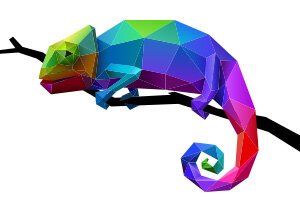READ STORIES THAT MATTER
Ibbaka Skill & Talent Blog
The Future of Work is a career braid of our different roles
The future of work will be more like a braid than a staircase. We will overlap different roles to build our careers. Some roles will be part of formal jobs, other roles will on teams and some roles will be informal. How do we prepare ourselves to succeed in this new world.
Competency models are living documents and need curation
Competency models can become large rigid structures that try to fit people into boxes. A good competency model is a living document, informed by the real skills people are using and the conversations they are having. It needs curation, or as we like to say gardening. When designing a competency model, make sure you are engaged with the people it represents, and cultivate that engagement as you would a garden.
Some key use cases for competency model adoption
HR leaders have a strategic role to play in supporting a business model shifts and the transformations required. How does this apply to skills and competency management? Let’s unpack the ways a competency model can be applied to enable transformation.
Mobilizing Talent After a Disruption
Will the experience of Covid 19, physical isolation, working from home and the associated economic disruption change how we work? If it will, HR and talent management will also need to change. And this will impact our skills and competencies. Share your thoughts on how HR, talent management and critical skills will change after Covid 19.
Critical Skills - Play
In a stressful time, one of the most important critical skills is play! Play is also important to many other things, from learning and innovation to team building and bonding. Let’s use this time of social isolation to build some play into our lives. Play can be both a foundational skill and a social skill.
New capabilities emerging in times of disruption (the future of work is today)
Industry shifts trigger disruption and can happen any time. Many amazing businesses will not survive the current shift, some amazing businesses will find opportunities and new ways of working. We examined those that accelerated capability development to drive meaningful and valuable outcomes for our communities - which skills have emerged, which skills will be strengthened and which skills endure.
Back to basics...
We are now reaching deep into skills and solutions lost a long time ago. Skills replaced by technology and services that are not available. This back to basics notion made me also look for examples of simplicity. "Basic" does not necessarily mean "simple," however, "simple" often means "ingenious." Use this time to dive inwards into the skills of the past and then use those skills to connect with the people you are close to.
Controlled Conversations
Coronavirus is causing a major behavioural change in society. We will see long term consequences in the way we interact with each other. We are going to shop, touch, try things differently, which will include the workplace. Being able to discover and excel in the adaptation skills that boost your chances to carve a new career path will be critical, and Ibbaka Talent is the right place to begin this journey into the unknown.
The cost of social norms
While social norms definitely apply to peer-rating, manager-rating may rely more on market norms and, if so, how can the Ibbaka Talent platform prevent both norms from crossing each other. Social norms and market norms do not always mix well.
Roles before jobs - towards the future of work
Once upon a time, work was organized in terms of jobs and the job architecture governed the organization. This model is failing. Careers today are woven together from a series of overlapping roles, braided together into a stream of continued learning and development. It is how we perform our multiple roles that drives performance.
Games and Arts - A new skill category?
Skill categories help to organize competency models and skill profiles. But any category system will have gaps and need an ‘other’ category. How do we design such category systems and when do we decide to add new categories or to combine existing categories? Does Ibbaka talent need a category for games and arts?
Designing the Open Competency Model Architecture
Open Competency Models will change how we create and share information about our skills and abilities. Many different architectures will be needed and they will evolve over time, but we need a starting point, a seed crystal so to speak. Here is the framework we are exploring.
"With concrete, you can cover almost any space." ~ Oscar Niemeyer
We can learn a lot from architecture, primarily from concepts that are seeking to truly connect with the people who will inhabit and use the new spaces. Connecting Skill Profiles to Competency Models require an approach that will allow the model to stay flexible and react to the surges of skill bubbling up from individual profiles. It's all about relationships and the context.
Time to go beyond soft skills to uncover our enduring skills
One frequently hears people contrast soft skills with more technical skills. The term soft skills is meaningless. We need a better way to categorize skills. One approach is to consider foundational, social, business, technical and design skills as equally important. This can help uncover human potential and find the enduring skills needed in a time of change.
On the design of skill surveys
Surveys are a dubious way to assess skills. They are not even adequate to surveying skills. But they do play a role in skill management. So the design of skill surveys is an important skill in itself for a company like Ibbaka. Here share our thoughts on best practices.
TeamFit becomes Ibbaka Talent
TeamFit and Ibbaka have combined to offer a new category of solution. Ibbaka Talent (formerly TeamFit) and Ibbaka Market (market segmentation, customer targeting, pricing) are designed to work together to connect insights into economic, emotional and community value with the skills needed to deliver that value across the customer journey. The result is sustainable growth.
Questions from Developing Potential: Powerful Driver of Talent Retention and Business Growth.
We sat down with Claude Werder, Principal HCM Analyst at Brandon Hall Group on developing potential and how it is a powerful driver of talent retention and growth. In order to make the right talent investments, there are key questions to answer. What skills are available in my organization? How are these applied? Will we have the skills to meet tomorrow’s goals? Where is the potential?
Three ways to tap your people’s potential
In the 20s it will be more important to leverage internal skills than to hire in. Potential skills are critical to sustainable growth. They come in 3 flavours.
A Third Skillscape
From Gilles Clément's "Third Landscape" to Skill Management Platform and "Third Skillscape." The power of abandoned places and their potential.
Skill transformation in 2020
Sustainable growth requires an ongoing investment in understanding, developing and applying skills. To do this effectively manage your skills as a portfolio.




















